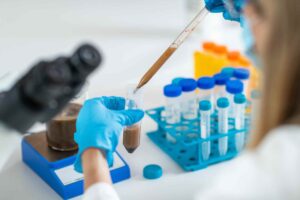Gastroenterology
Gastroenterology, Scientific research
The effects of coffee on health may be mediated by gut microbes such as L. asaccharolyticus and their metabolites.
Gastroenterology, Video
Nigel Titford, CEO at Biogaia Pharma, discusses the strategic considerations and challenges involved in working across both the dietary supplement and pharmaceutical sectors.
Gastroenterology, Gynecology
Mice born to mothers exposed to Akkermansia muciniphila during pregnancy showed improvements in stem cell activity.
Gastroenterology, Neuroscience
A study revealed a link between gut microbiota composition and brain development in preterm infants, suggesting that specific bacteria and their metabolites can influence neurodevelopment.
Gastroenterology, Immunology
The findings of a recent study suggest that while T. musculis can worsen asthma, it might also help the body fight off infections, offering potential for new treatments targeting the…
Gastroenterology, Cardiology
Nicola Segata, from University of Trento, investigates the intricate links between diet, microbiome composition, and cardiometabolic outcomes.
Gastroenterology, Pediatrics
Clara Delaroque, from Institut Pasteur (France), emphasizes the critical interplay between early-life microbiota and host health, specifically how the use of common food additives impacts the susceptibility to diseases later…
Gastroenterology
By suggesting that the diversity and variety of microbial species play a big role in whether the transplanted microbes can successfully colonize a recipient’s gut, the findings could pave the…
Gastroenterology, Video
Raphaëlle Bourdet-Sicard from Danone Nutricia Research discusses a study which investigates the use of a mixed prebiotic formulation to enhance iron absorption while mitigating adverse effects on gut microbiota.
Gastroenterology
Targeting L-kynurenine metabolism could be a therapeutic strategy for managing Crohn’s disease.











